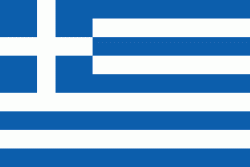Matala (Mátala)
Matala (Greek: Μάταλα) is a village located 75 km south-west of Heraklion, Crete, Greece. Matala is part of the community of Pitsidia within the municipal unit of Tympaki, Faistos municipality, Heraklion regional unit.
The artificial caves in the cliff of the Matala bay were created in the Neolithic Age. Matala was the port of Phaistos during the Minoan period. In the year 220 BC, Matala was occupied by the Gortynians, and during the Roman period, Matala became the port of Gortys. It has been suggested that the caves were once used as tombs, but it is more likely that they were used as living spaces, given their volume (corpses do not need that much room to walk around). One of the caves is called "Brutospeliana" because according to the legend it was frequented by the Roman general Brutus.
Matala was then a fishing village. In the 1960s, the caves were occupied by hippies who were later driven out by the church and the military junta. Matala is now a heavily built tourist destination relying on coach tours and summer visitors. There are many gift shops and bars. Matala's hippie history relives during the 3 days Matala Beach Festival, every June (since 2011).
The artificial caves in the cliff of the Matala bay were created in the Neolithic Age. Matala was the port of Phaistos during the Minoan period. In the year 220 BC, Matala was occupied by the Gortynians, and during the Roman period, Matala became the port of Gortys. It has been suggested that the caves were once used as tombs, but it is more likely that they were used as living spaces, given their volume (corpses do not need that much room to walk around). One of the caves is called "Brutospeliana" because according to the legend it was frequented by the Roman general Brutus.
Matala was then a fishing village. In the 1960s, the caves were occupied by hippies who were later driven out by the church and the military junta. Matala is now a heavily built tourist destination relying on coach tours and summer visitors. There are many gift shops and bars. Matala's hippie history relives during the 3 days Matala Beach Festival, every June (since 2011).
Map - Matala (Mátala)
Map
Country - Greece
 |
 |
| Flag of Greece | |
Greece is considered the cradle of Western civilization, being the birthplace of democracy, Western philosophy, Western literature, historiography, political science, major scientific and mathematical principles, theatre and the Olympic Games. From the eighth century BC, the Greeks were organised into various independent city-states, known as poleis (singular polis), which spanned the Mediterranean and the Black Sea. Philip II of Macedon united most of present-day Greece in the fourth century BC, with his son Alexander the Great rapidly conquering much of the ancient world, from the eastern Mediterranean to the North Western parts of India. The subsequent Hellenistic period saw the height of Greek culture and influence in antiquity. Greece was annexed by Rome in the second century BC, becoming an integral part of the Roman Empire and its continuation, the Byzantine Empire, which was culturally and linguistically predominantly Greek.
Currency / Language
| ISO | Currency | Symbol | Significant figures |
|---|---|---|---|
| EUR | Euro | € | 2 |
| ISO | Language |
|---|---|
| EN | English language |
| FR | French language |
| EL | Greek language |















